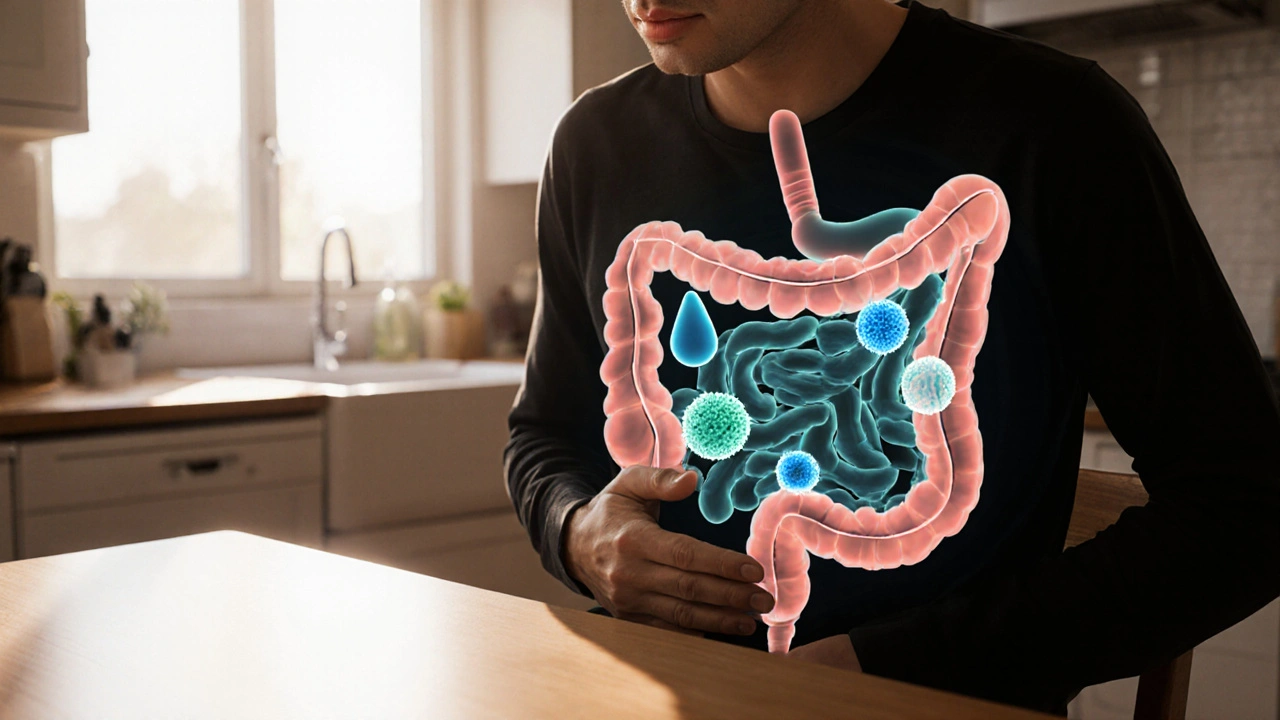If you’ve ever felt sudden cramps, bloating, or a rush to the bathroom that just won’t quit, chances are you’ve run into IBS (irritable bowel syndrome). It’s not a rare disease; millions deal with it daily. The good news? You can learn what sets off your gut and take steps to feel better without endless doctor visits.
The classic IBS trio is abdominal pain, bloating, and irregular bowel movements – either constipation, diarrhea, or a mix of both. Food is the biggest trigger for most people. High‑FODMAP foods like onions, garlic, beans, and certain fruits can ferment in the gut and cause gas. Stress also plays a big role; anxiety spikes your gut’s nervous system and can flare symptoms within minutes.
Other culprits include caffeine, alcohol, and artificial sweeteners. Even a change in routine – traveling, new work schedule, or sleep disruption – can set off an episode. Keeping a simple symptom diary helps you spot patterns faster than guessing.
The easiest first step is to try the low‑FODMAP diet for two weeks. Cut out high‑FODMAP foods, then reintroduce them one at a time while noting any reaction. You’ll quickly see which items you can tolerate.
Fiber matters, but choose the right kind. Soluble fiber (like oats or psyllium) softens stools without aggravating gas, whereas insoluble fiber (wheat bran) can worsen bloating for some folks. Aim for 20‑30 grams of soluble fiber daily and watch how your body reacts.
Stay hydrated – water helps move food through the intestines and reduces constipation. Regular exercise, even a brisk walk after meals, stimulates gut motility and cuts down on gas buildup. Stress management techniques such as deep breathing, meditation, or short yoga sessions can calm the gut‑brain axis.
If over‑the‑counter options appeal to you, consider an antispasmodic like dicyclomine for occasional cramps, or a probiotic containing Bifidobacterium strains. These aren’t cures but can smooth out flare‑ups when used correctly.
Finally, don’t ignore the power of routine. Eating meals at similar times each day gives your digestive system predictable cues and often reduces surprise attacks.
When symptoms become severe, persistent weight loss appears, or you notice blood in stool, it’s time to see a healthcare professional. They can rule out other conditions and discuss prescription options such as low‑dose tricyclic antidepressants or newer gut‑targeted drugs.
This tag page gathers articles on medications, supplements, and lifestyle hacks that many IBS sufferers find useful. Browse the list for deeper dives into specific treatments, safe online pharmacy tips, and real‑world success stories.

